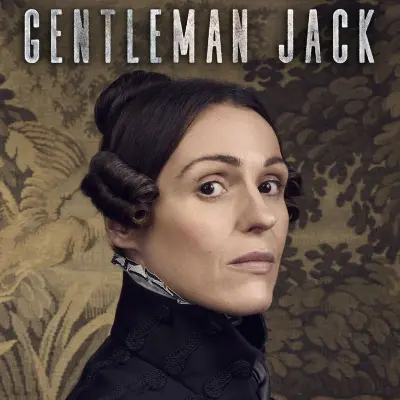HBO's Gentleman Jack is one of the most engaging dramas of the year
-

"It’s not easy to describe a character as intensely original as Anne Lister, the gender nonconforming (the everything nonconforming) 19th-century protagonist in HBO’s deliciously provocative British period drama Gentleman Jack, which premieres Monday night on HBO," says Hank Stuever of the drama from Happy Valley and Last Tango in Halifax creator Sally Wainwright. (Yes, Monday night. The buggy whips are a-crackin’ over at HBO, which is now owned by AT&T and under orders to speed up the conveyor belt, in a race to smother us all in TV shows.) But Gentleman Jack is far from filler content; indeed, it’s one of the most engaging dramas to come along so far this year. At first blush, this eight-episode series may look more PBS than HBO, but the second blush is a doozy — and it would probably send Masterpiece pledge-drivers straight to the fainting couch." He adds: "Gentleman Jack is particularly canny in the way it allows Anne’s dangerous delusions (including the notion of a same-sex union) to flourish and then start to unravel by the fifth episode. Although the viewer is inclined to root for her to prevail, Anne often falls somewhat short of heroic, and that’s by design. Driven by class status, she manipulates people to get what she wants, and her obsessive pursuit of the naive Ann Walker verges on predatory."
ALSO:
- Jaunty, funny, smart: Gentleman Jack works immediately because the moment you see Suranne Jones as Anne Lister, you get it
- Creator Sally Wainwright gives us a profoundly human heroine: Anne Lister is never an "idealistic queer woman, or an elitist landowner, or a tough but finesse-lacking entrepreneur, or a would-be intellectual whose giddiness during an autopsy proves infectious, but a multifaceted character who never wants to sacrifice any part of herself or her prerogatives."
- Gentleman Jack seems to shy away from its own stakes: "There is gorgeous, important beauty in a story about a woman who takes pleasure in living openly as herself even when she has to go against everyone around her to do it. But downplaying the stakes of Anne’s life also downplays her iconoclasm and her courage."
- Gentleman Jack not only provides us with a story we haven't seen before, it allows Anne Lister and Ann Walker to be far more than just their tumultuous love story
- Gentleman Jack treads a meandering line—sometimes satisfying but often frustrating: A character study whose central figure remains opaque despite her grand illustration
- Gentleman Jack reminds us that gender norms have always been broken
- The most frustrating part of Gentleman Jack is that it frequently doesn’t seem to have a handle on Anne herself
- Sally Wainwright on having Anne Lister occasionally address viewers: "Absolutely. I thought long and hard about (whether) we wanted her to address the camera, because it’s something that a lot of people do now, with varying degrees of success. So I was quite nervous about whether to do it or not, and indeed, how to do it. We did it very sparingly, and we only did it when we felt absolutely justified. But the thinking behind it was definitely that (feeling) of intimacy with her audience. When you’re reading her most intimate thoughts in the journal, it does feel like you’ve got a direct line to her."
TOPICS: Gentleman Jack, HBO, Sally Wainwright, Suranne Jones, LGBTQ
More Gentleman Jack on Primetimer:
